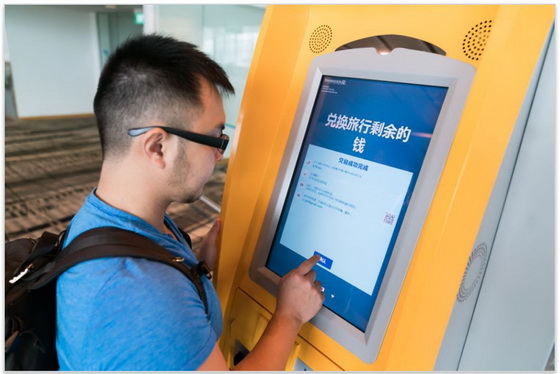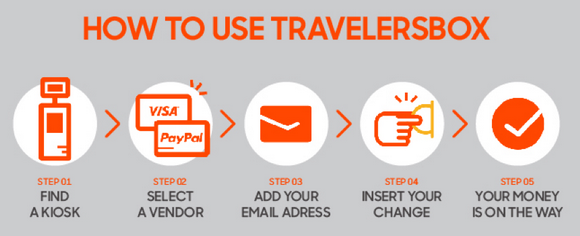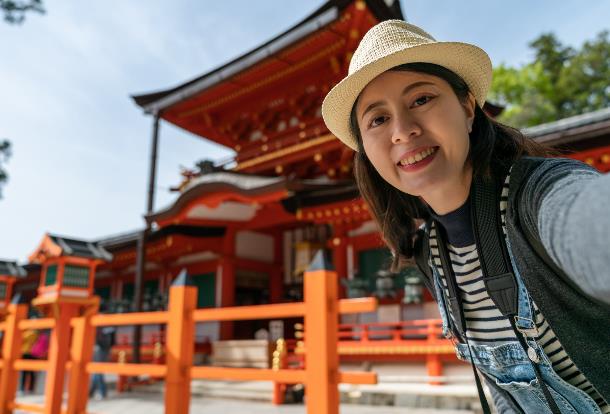ChinaTravelNews, Ritesh Gupta - Management of money is increasingly becoming simple, drifting away from cash and even credit/debit cards to emerging alternative payment methods.
But when we travel we do tend to carry foreign currency as cash in various forms. This is because an alternative payment method might not work in another country, for instance, would China’s Alipay or Indian offering Paytm work in Holland?
It might or might not, but no traveler would take a chance and still the utility of “notes” of a currency can’t be ignored, especially for transactions like when you moving out of the airport to hire a cab or any public transport. But at the end of the trip, you are left with this foreign currency, too.
In this context, when travelers are being given an opportunity to convert their left-over foreign currency into digital money, it comes across as a welcome move. Rather than carrying a currency that might get wasted or even unused for a while, why not exchange it for your native currency, or even gift cards/ coupons?
Making it work
As a specialist in this arena, TravelersBox, which has raised USD 15 million to date, has been expanding their operations, letting travelers deposit their leftover foreign currency, coins and bills, directly into their online accounts such as PayPal, Baidu, Yandex.Money, Qiwi, Neteller; purchase e-gift cards (iTunes, Starbucks, JD.com etc.)

The company operates via kiosks in various countries including in Singapore, Israel, Japan, the Philippines, Canada, Italy, UK and Turkey.
As for China, Tomer Zussman, CEO of TravelersBox, says his team is currently associated with “favorite brands of the Chinese travelers like JD.com, Amazon, Baidu Wallet etc.” to help them convert their unneeded foreign currency into useful digital money.
“We are also launching the TravelersBox kiosks in China soon,” shared Zussman.
“TravelersBox kiosks can be found in the many key destinations that Chinese travelers visit, including Japan, the Philippines, and Singapore. We will also be launching in Thailand, Vietnam, Russia and many other key markets (in the near future),” shared Zussman.
“We are also looking at different ways by which we can help travelers and people convert their spare foreign change into useful digital money. This includes bringing the kiosks out of the airport to other areas within the city, and also expanding the TravelersBox offering beyond kiosks at the airports. Our innovative and proprietary platform enables merchants to help manage small change effectively - enabling them to seamlessly convert cash to digital money or direct deposits into customer’s accounts.”
TravelersBox is authorized by the local banks and port authorities in each location. The company was launched in 2012. The business model is based on commission and an affiliation fee from merchants.
“We do not seek to make a commission off the exchange rates,” shared Zussman.
So how to convert?
The user would get an email with the details for the credit or voucher. From there, they just have to follow instructions depending on the vendor, and the digital money will be credited to their respective accounts. So the money on the way refers to the vouchers or details coming through via email. The deposit will be available to users within 48 hours.

“As Chinese companies continue to expand into other markets around the world, our platform helps them increase their visibility beyond China and acquire new customers while increasing customer loyalty,” he said.
The company believes their main challenge is awareness among the Chinese travelers. “We are a brand new service and there is a need to educate consumers and ensure they understand the service, and to look out for it at airports around the world,” shared Zussman. For the convenience of local travelers, TravelersBox has localized the user interface of its offering, and have provided Chinese customer support but it is still too early as far as penetration is concerned.
One critical step would be to get into most popular ecosystems such as Alibaba and Tencent. So are WeChat and Alipay on the radar, too?
Answering the same, he added, “We are definitely looking at ways to help travelers access their favorite brands and are actively working with all the top brands in the market. Market reception has been very positive and we are encouraged by the support we have gotten from our partners so far.”
As for strengths of TravelersBox’s core offering, Zussman referred to:
• Working out a “flexible and adaptable solution” for partners such as Baidu, JD.com etc. “(Our solution) provides seamless integration for our partners to leverage their current process or API to minimize their effort,” he said.
• As for dealing with issues such as fake notes, Zussman asserted that his company has a proprietary system that enables the team to ascertain the validity of the currencies they accept.
• In the long term, the company intends to provide more diverse solutions through which cash can be converted to digital money either through e-wallets, direct deposits into bank accounts or credits to loyalty programs. “This benefits the consumer as well as our brand partners who are able to leverage our network and platform to generate new sources of revenue, find new customers and reach new audiences,” said Zussman.
Citing an example, he said the in-flight solution is integrated with the payment systems which airlines use for in-flight duty-free sales. “Airlines are able to gain new sources of revenues by selling digital vouchers online while passengers get a smart solution to spend their leftover foreign currency which they may not wish to use on the airline’s current duty-free catalogue.”
• The team is also looking at how TravelersBox can better support other tourist and retail stores. “For example, travelers leaving hotels may easily convert cash to hotel loyalty programs and same for airlines. We may also work with local attractions to set up kiosks where tourist can purchase entrance tickets in their individual currencies and get change back in the form of digital money, e-wallets or even shopping vouchers within the attraction,” concluded Zussman.




